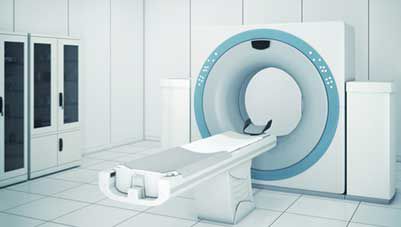Forensic science is a critical field that blends science and law to help solve crimes and deliver justice. In India, the demand for skilled forensic scientists is growing as the criminal justice system becomes more reliant on scientific evidence. Forensic scientists analyse physical evidence collected from crime scenes, helping law enforcement agencies identify perpetrators and establish facts that are crucial in legal proceedings. Their expertise ranges from examining fingerprints and DNA to analysing digital data and toxicology reports. As crime methods evolve, so does the need for advanced forensic science techniques, making this profession both challenging and rewarding.
Who is a forensic scientist?
A forensic scientist is a professional who applies scientific methods and principles to investigate crimes. They work closely with police and legal authorities by analysing evidence collected from crime scenes, suspects, and victims. The objective is to provide objective, scientific data that can be used in courts to support or refute claims. Forensic scientists can specialise in various domains, including forensic chemistry, biology, toxicology, ballistics, and digital forensics. Their findings play a vital role in solving criminal cases, identifying unknown substances, and ensuring the integrity of investigations. In essence, forensic scientists act as the bridge between science and the judicial system.
Forensic scientist eligibility criteria in India
To pursue a career as a forensic scientist in India, candidates must meet specific eligibility criteria to ensure they have the requisite knowledge and skills for this specialised field.
| Criteria | Details |
|---|---|
| Age Limit | Typically 21-30 years (varies by institution) |
| Educational Qualification | Bachelor’s degree in Science or related fields |
| Minimum Marks | Generally 50% or above in the qualifying exam |
| Nationality | Indian citizen |
| Entrance Exams | Clearing entrance tests conducted by institutes or government agencies |
Educational qualifications to become a forensic scientist
To become a forensic scientist in India, candidates typically follow a structured educational path:
- Bachelor’s degree: Most candidates start with a Bachelor of Science (B.Sc.) degree in forensic science, chemistry, biology, physics, or related fields.
- Master’s degree: Many forensic scientists pursue a Master of Science (M.Sc.) in forensic science or specialized subjects like forensic chemistry or forensic biology to deepen their expertise.
- Diploma and certification courses: There are also diploma courses and short-term certifications that focus on niche forensic areas such as digital forensics or forensic toxicology.
- Ph.D.: For those interested in research or academic careers, a doctorate in forensic science or a related discipline can be pursued.
Top forensic science courses in India
India offers several reputable courses that train aspiring forensic scientists. Here are some of the prominent ones:
| Course name | Duration | Institution |
|---|---|---|
| B.Sc. Forensic Science | 3 years | Various universities |
| M.Sc. Forensic Science | 2 years | National Forensic Sciences University (NFSU), Gujarat; Jamia Millia Islamia |
| Diploma in Forensic Science | 1 year | Institute of Forensic Science, Delhi |
| Post Graduate Diploma in Forensic Science | 1 year | Guru Ghasidas University, Bilaspur |
| Certificate Course in Digital Forensics | 6 months | Various institutes |
Forensic scientist entrance exams in India
Admission to forensic science courses or government jobs as forensic scientists often requires clearing entrance exams. Important exams include:
- NFSU entrance exam: Conducted by the National Forensic Sciences University for admission into its various forensic science programs.
- CSIR NET (JRF): For candidates interested in research roles within forensic science.
- State public service commission exams: Some states conduct exams for forensic scientist recruitment.
- GATE: Graduate Aptitude Test in Engineering, for specialised forensic technology roles.
- Other university-specific exams: Various universities may conduct their own entrance exams for forensic science courses.
Forensic scientist career path and job roles
A career in forensic science offers multiple avenues, from lab work to field investigation and research. Typical job roles include:
- Forensic Chemist: Analyses chemical substances found at crime scenes.
- DNA Analyst: Works on genetic material to identify suspects or victims.
- Toxicologist: Studies the effects of toxins and poisons on the body.
- Ballistics Expert: Investigates firearms and ammunition-related evidence.
- Digital Forensic Analyst: Recovers and analyzes digital data from electronic devices.
- Crime Scene Investigator: Collects and preserves evidence from crime scenes.
- Forensic Pathologist: Examines bodies to determine cause of death (usually requires medical qualifications).
Career progression can lead to senior roles such as forensic lab manager, consultant, or academic positions. Many forensic scientists work with government agencies like the Central Bureau of Investigation (CBI), police departments, forensic labs, or private firms.
Skills required to become a forensic scientist
Success in forensic science demands a blend of technical and soft skills:
- Analytical Skills: Ability to critically analyze evidence and draw accurate conclusions.
- Attention to Detail: Precision is essential in handling and examining evidence.
- Scientific Knowledge: Strong grounding in biology, chemistry, physics, and forensic methodologies.
- Communication Skills: Ability to prepare detailed reports and testify in court.
- Problem-Solving Abilities: Developing innovative approaches to investigate complex cases.
- Patience and Perseverance: Investigations can be time-consuming and require meticulous work.
- Ethical Judgment: Maintaining integrity and objectivity in all forensic analysis.
- Technical Proficiency: Familiarity with lab instruments, software, and forensic tools.
Challenges faced by forensic scientists in India
Forensic science in India faces several challenges that professionals must navigate:
- Limited infrastructure: Many forensic labs lack modern equipment and adequate resources.
- Backlog of cases: Overburdened labs delay analysis, affecting timely justice.
- Lack of awareness: Public and law enforcement agencies often have limited understanding of forensic science.
- Training gaps: Shortage of skilled trainers and continuing education opportunities.
- Legal hurdles: Courts sometimes question the credibility of forensic evidence due to procedural lapses.
- Funding constraints: Insufficient financial support for forensic research and development.
- Rapid technological changes: Need to keep pace with emerging forensic technologies.
Future scope of forensic science in India
The future of forensic science in India is promising, driven by technological advances and increased emphasis on scientific evidence in courts. Key trends include:
- Growing demand: Increasing crime rates and legal reforms boost the need for forensic experts.
- Specialisation opportunities: Emerging fields like cyber forensics and forensic accounting.
- Government initiatives: Programs to upgrade forensic infrastructure and training.
- Private sector growth: Expansion of private forensic labs and consultancy services.
- Research and innovation: Advancements in DNA sequencing, chemical analysis, and AI-powered forensic tools.
- International collaborations: Partnerships for knowledge exchange and skill enhancement.
- Enhanced career prospects: Opportunities in academia, law enforcement, and private industry.
Conclusion
Forensic science is a dynamic and vital field at the intersection of science and law, offering rewarding career opportunities for those with a passion for investigation and justice. With the right educational qualifications, skills, and determination, aspiring forensic scientists in India can contribute significantly to crime-solving and legal processes. Despite current challenges, the future holds immense potential for growth and specialisation in forensic disciplines. If you are considering a career in forensic science and need financial support for your education or related expenses, exploring options like a doctor loan could be beneficial, especially if you come from a medical or scientific background seeking further specialisation.















